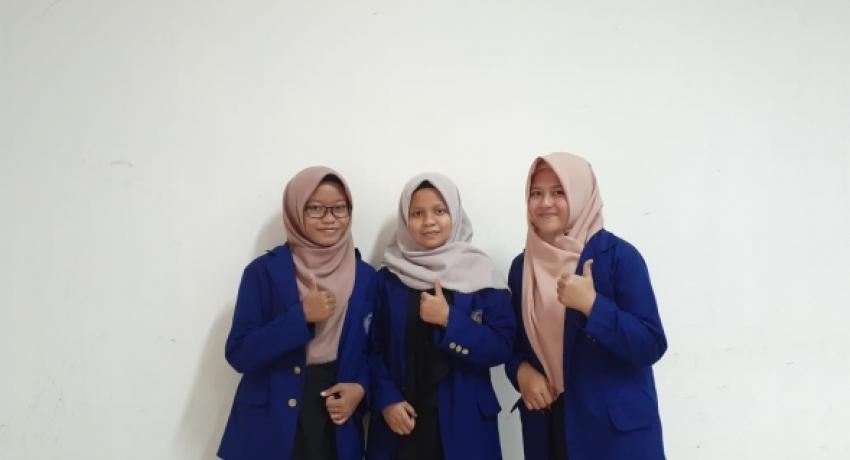Recently there has been a trend in the use of financial services based on digital technology or known as financial technology (fintech). The trend of the use of fintech also increased rapidly from 7% in 2006-2007 to 78% in 2017. This interesting fact has made three UNY students, Meta Munita Sari (Accounting 2016), NurulKhasanah (Accounting Education 2015), and Apfi Anna Krismonita (Economic Education 2016) examines the impact of fintech on student lifestyles.
"Technology development make fintech services increasingly attractive to the community, especially young people. Even the progress of this fintech also affects the lifestyle of students, "said Meta Munita Sari when explaining the results of her research, Monday (09/16/2019).
Meta and her team examined the impact of fintech on the lifestyles of Yogyakarta students in the framework of the Humanities Social Research-Creativity Program (PKM-PSH). Using a questionnaire in data collection, they surveyed 400 students in 23 tertiary institutions.
Based on the results of data collection and processing, Meta and her team found that many Yogyakarta students use fintech. The types of applications used the most are payment applications (75.8%), financial planning applications (10%), loan applications (7.5%), funding applications (4,5%), and online financial data information applications (3,5%).
But on the other hand, it turns out that the development of fintech among students is not accompanied by adequate fintech literacy capabilities. From 400 students surveyed, Meta and her team found that the majority of students lacked fintech literacy. From a scale of 0-8, the fintech literacy of new Yogyakarta students is worth 3.62.
"Given the lack of literacy, we will design educational media related to fintech in the form of social media, video or short films, and books or modules," concluded Meta.With this financial technology education media design, students are expected to be able to utilize fintech to be useful for future student life. (Muhammad Abdul Hadi/JK)





